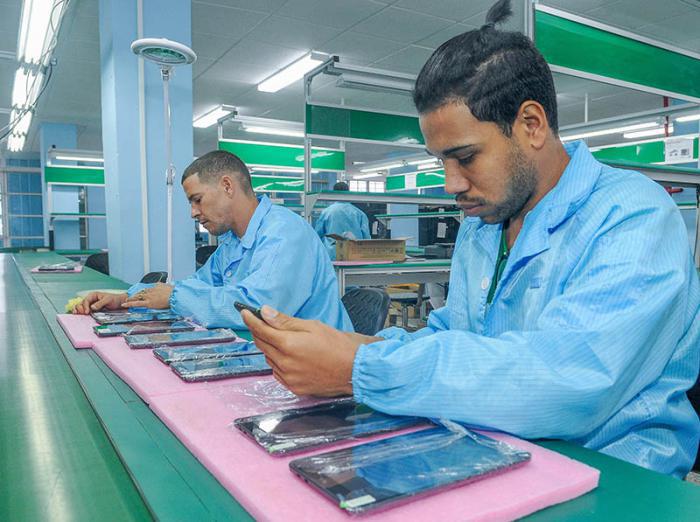
Diversifying IT Services and Making Them Exportable
The Minister of Communications, during the balance sheet of the Informatics and Communications Business Group, highlighted the need to encourage human capital and undertake projects that increase income
by Yaditza del Sol González | internet@granma.cu
February 19, 2020
Translated and edited by Walter Lippmann for CubaNews.

Cuba is strongly committed to the computerization of society, despite the intensification of the U.S. economic blockade. Currently, 63% of the country’s population is connected to the Internet through various channels. Photo: Granma Archive
Establishing alliances that promote productive linkages between different Cuban enterprises, implementing services to citizens, with priority given to government management and electronic commerce, as well as accelerating the safe development of technological infrastructure and encouraging research, development and innovation programs, are actions that respond to a single strategy: the implementation of the policy of computerization of society.
This was the opinion of the head of the Ministry of Communications, Jorge Luis Perdomo Di-Lella, who highlighted the need to encourage human capital and undertake projects that increase income. In this sense, he referred to the possibilities of exporting Cuban software, with a guaranteed quality, and in the deployment of proposals that are connected with foreign investment.
“The challenge is to diversify services, make them attractive, study which ones we can offer in the international market, all from the resources we have. In view of the economic situation of the country and the tightening of the U.S. economic blockade against Cuba, we are called upon to manage financing and seek foreign currency. [We must do this] either by using measures to make state-owned companies more flexible or by means of productive chains. This not only contributes to the monetary stability of the country but also to the very development of business.
During the assessment of the Informatics and Communications Business Group, the Minister called for a close follow-up of the e-government program. [This is] because once the present stage is over, “we are entering a more complex phase, where the provincial and local governments must guarantee the updating of the website’s contents and motivate the citizen to be at the center of the transformation of the management they carry out”.
With respect to cyber security, he said that there is a demand for digital certificates in the country and yet there is no consolidated marketable supply from computer and communications companies. The use of these certificates by the institutions allows us to increase the security codes and protect the exchange of information, an essential tool in a scenario where Cuban users are increasingly connected.
As Cuban President Miguel Díaz-Canel has mentioned on several occasions – the Minister emphasized – we must be able to make better use of the financial resources at our disposal to enhance the process of computerizing society.
IN FIGURES
By the end of 2019:
7.1 million Cubans were connected to the Internet, representing 63% of the country’s population
More than 143,000 homes were connected to the Nauta Hogar network
More than six million active lines are supported by the mobile phone network on the island, and 70% of these connections were made through smartphones
Source: Global Digital Report 2020 and Etecsa

You must be logged in to post a comment.